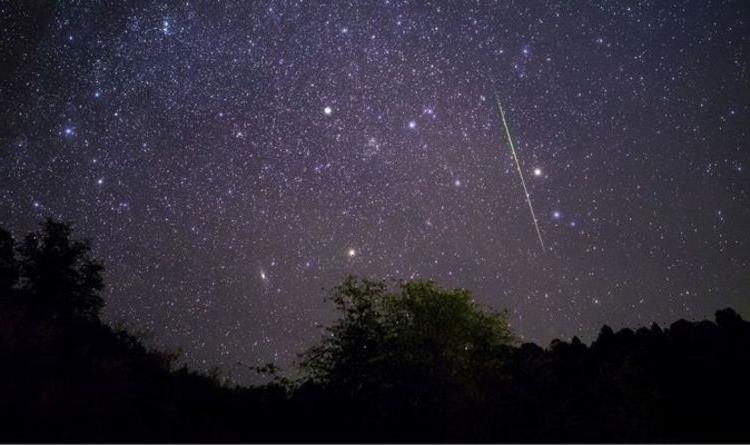Turkey: 'Fireball' meteor lights up the sky as it falls
We use your sign-up to provide content in ways you’ve consented to and to improve our understanding of you. This may include adverts from us and 3rd parties based on our understanding. You can unsubscribe at any time. More info
The Leonids meteor shower is a stunning astronomical sight which appears in skies above the UK every November. The Leonids meteor shower is expected to reach its peak between November 17 to 18. Here are the key timings for this display.
The Leonids is one of the most impressive meteor showers of the year.
Its shooting stars are famous for falling faster than in any other meteor shower in the annual astronomy calendar.
According to estimates by NASA these meteors usually fall at a staggering 44 miles per second – so those keen on catching a glimpse of these shooting stars will have to keep an eager eye on the sky tonight.
The Leonids meteor display typically boasts up to 15 meteors an hour.


This meteor shower is characterised by its fast bright meteors with fine trains, which are caused as debris from the Tempel-Tuttle comet comes into contact with our atmosphere.
When is the best time to see the meteor shower?
On November 17 and 18, the Leonids meteor shower is expected to reach its peak above the UK.
This means your best chance of catching this display will be on Wednesday to Thursday night this week.
These meteors will fall throughout the night, but to see them at their best you should wait until the night is at its darkest.

At this time of year that will be on Thursday, November 18 between midnight and 6am.
Which parts of the UK will have the most vibrant displays?
To get the best view of the Leonids you will need a clear night sky – views of this shower will worsen if there are too many clouds in the sky.
Unfortunately, the Met Office has predicted rain and wind for the North.
This cloud cover together with tonight’s bright moon (that will cause glare) will mean that meteors will likely appear fainter in the north.
Those living in the south are expected to have the best view of this display, as conditions are expected to be largely dry with variable cloud cover when the shower reaches its peak between November 17 to 18.

How can you improve your chances of seeing this display?
Meteors can be seen with the naked eye (provided it’s a clear night), so there’s no need to use binoculars or a telescope.
To catch the best views of these shooting stars try to avoid light pollution where possible.
If you can drive to a place where there is limited light pollution caused by buildings or street lights you should have the clearest view of the night sky.
You should allow your eyes to adjust to the dark and then avoid looking directly at the radiant, as this can limit the number of shooting stars you see.
The Royal Observatory recommends looking just to the side in a dark area of the sky, as this will boost your chances of catching some meteors with long trails.
If you miss this year’s Leonids display don’t worry, there’s another impressive meteor display just around the corner.
The Geminids is the next meteor shower forecast to appear above UK skies.
It’s one of the last major showers of the year and it’s expected to peak on December 14, but the normal limits of the display are between December 3 to 16.
Source: Read Full Article
